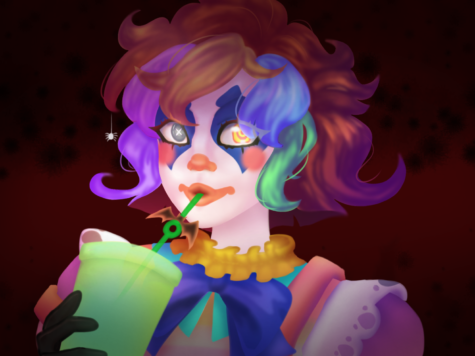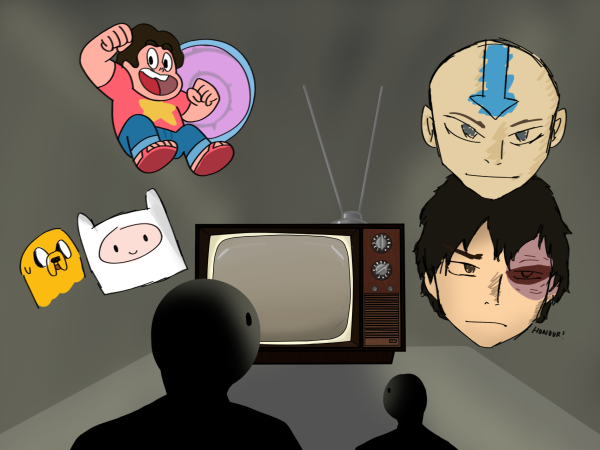The Two Doors
June 14, 2023
The piercing stares burn through my blue scrubs, stained wine red. I try to un-hear the wailing ambulance and crying families, un-see the nurses scrambling around occupied rows of hospital beds, un-smell the heavy scent of cleaning agents, yet my senses are assaulted again and again.
The blinds reflect the glowing red of after-work traffic as people rush home like excited ants bringing back scavenged food. A couple of hours ago, I was part of that euphoric colony before receiving the dreaded call.
Pointing left, the nurse robotically lists, “Patient 1,
20-year-caucasian male.
Possibly intoxicated.
Hit and run case.
Crashed into utility pole.
Requires decompressive craniectomy surgery.
Suspected penetrating traumatic brain injury with broken skull.
Symptoms: dilated eyes, excessive bleeding, nausea, CSF leak.”
I watch painless tears ooze out of the corner of his once youthful eyes, the seeping blood seems incidental. He continues to gawk at me, mutely pleading for relief from his pain. Unrecognisable sounds escape from his mouth. Metal handcuffs. They rub against the raw skin of his right wrist, clinking with the twitch of his fingers. Police officers flank his sides, guarding every move, every person that approaches the almost dead man. Nurses layer bandages manically, to arrest the profuse bleeding.
Unhappy with my blank gaze, the nurse points at the CT scan of Patient 2. She lists calmly, “60-year-asian male.
Received chemotherapy for cancerous brain tumour.
Experienced severe pain.
Seizure at 9am.
Symptoms: Internal bleeding, pressure on spine.
Requires immediate craniotomy.”
The man lies motionless, dressed in navy silk pyjamas. His short white hair is neatly combed with rough stubble pricking out from his chin.
Silence haunts the room before the nurse continues, “He is also a VIP patient, the son of a major investor.” Thick diamond chains wrap around the crossed arms of his family. Behind, are a row of suited men and women, each carrying a thick leather briefcase, busy calling with composed firm voices.
Only opening my mouth halfway, the nurse replies, “No other hospitals or neurosurgeons are available. One will wait four hours for Dr Lee to finish operating.” Either one will pass away or the other will be permanently paralysed. My fingernails carve crescent shapes into my palms. Another layer of sweat masks my skin with a glow.
A 6-foot man wearing a clean, ironed suit emerges from the right, hanging up the phone as he passes me a sleek black card. He smiles confidently, white teeth glistening like his gold-plated watch. “We are happy to compensate heavily for overtime, provide bonus incentives and increase funding,” reaching out his right hand as if in agreement.
It tempts me. A long-awaited holiday. I smell the smokey ashes of wood fired pizzas and taste the creaminess of the pastas. My parent’s dream trip. “Of course, you have to take the second patient,” I imagine them snap, “He is your direct highway to the position that you have been eyeing.” Accidentally making contact, I watch pools of hopelessness and despair swirl around the dull chocolate eyes of the first patient.
The heavy thumps of my heart quicken, watching the blood begin to drip onto the floor with wide eyes. No spot of white remains on the bandages as the nurses continue layering more.
Dragging me aside, the nurse whispers with a clenched jaw, “You must take the first patient”. Mentally calculating, the first patient has an estimated survival rate of 5-15% while the second is 21%. ‘Patients are prioritised by urgency,’ I recite to myself.
“Fired. Fired” The little voice haunts me, booming louder and louder. I picture the disappointed looks of my parents, supervisor and director. Making decisions is like asking a child whether they want a lolly. Despite already having two, ten or fifty they take it, like Adam and Eve in the Garden of Eden.
“Incoming call!” Taking the phone, I hear the quick breaths of Dr Lee. He yells, “Take the second case!”, before immediately hanging up.
The young man’s electrocardiogram machine begins beeping like a finished timer. Beep! Beep! They quicken, racing each other. “Fired. Fired,” the voice roars.
“Prepare rooms 1 and 2!” I shout, imagining the wide mouths behind me as I stiffly push the door.












